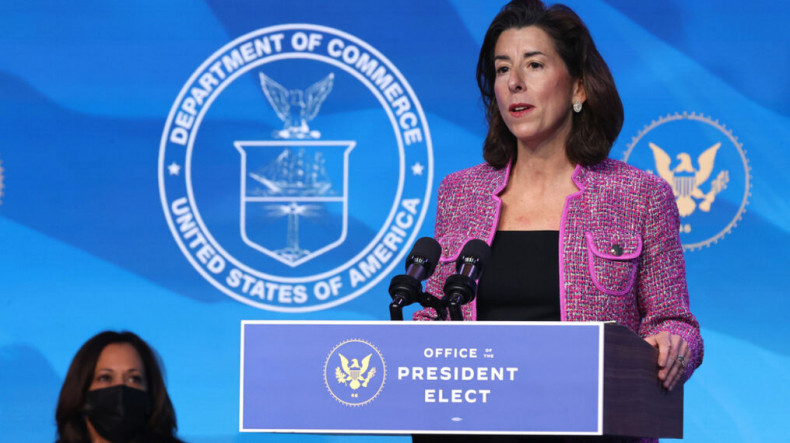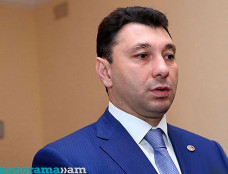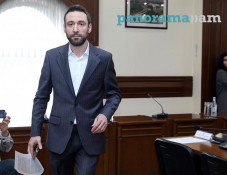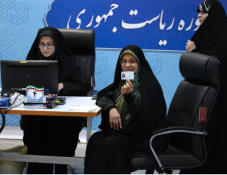
Commerce Secretary Raimondo urged to block U.S. rifle sale to Azerbaijan
The Armenian National Committee of America (ANCA) national and Rhode Island affiliate called on Secretary of Commerce Gina Raimondo to oppose any consideration of granting a license to permit the export of rifles to Azerbaijan, ANCA reported on Wednesday.
In a February 13th letter, ANCA Executive Director Aram Hamparian and the local ANC chair from Secretary Raimondo’s home state of Rhode Island, Steve Elmasian, explained, “As you know, from your long friendship with Americans of Armenian heritage in Rhode Island and across the United States, our community is deeply troubled by the U.S. military aid program to Baku, and even more shocked by the possibility that American offensive weaponry may be deployed against Armenians in Artsakh (Nagorno Karabakh) and Armenia. The victims of Azerbaijan’s attacks are, very often, the relatives and friends of Armenian American citizens.”
News of a possible sale of U.S. rifles – including assault-style and semi-automatic sniper models – to Azerbaijan broke on February 1st when Senate Foreign Relations Committee Chair Robert Menendez (D-NJ) announced his “deep concern and strong opposition” to the effort.
In a letter to Secretary Raimondo, Sen. Menendez explained that Azerbaijani atrocities against Artsakh (Nagorno Karabakh) and Armenia are well documented, citing the September 2022 attack on sovereign Armenian territory and the now two-month blockade of Artsakh, which has left the 120,000 indigenous Armenian population without sufficient food, medicine, and rolling gas stoppages in freezing conditions. Sen. Menendez also highlighted Azerbaijan’s ongoing extrajudicial killings, torture, and unlawful treatment of Armenians following the 2020 Artsakh war, as documented in the State Department’s 2021 Country Report on Human Rights.
“The export of weapons to an authoritarian country that wages war against a neighbor, blockades a vulnerable population, and commits rampant human rights violations at home is not consistent with the Administration’s commitment to democracy and human rights,” Sen. Menendez stated. “Further, the consideration of this export license further compounds my dismay that the Administration continues to allow the export of assault-style and sniper rifles abroad – even while supporting an assault-style rifle ban domestically – and deepens my reservations about the Department of Commerce having jurisdiction over such exports,” concluded Senator Menendez.
As Rhode Island general treasurer and later governor, Secretary Raimondo worked closely with the ANC of Rhode Island and the state’s Armenian American community, attending community events and taking a principled position condemning the Armenian Genocide.
During the 2017 Armenian Genocide commemoration, then-Governor Raimondo remarked, “We come together today as a community to remind ourselves of the Genocide and of the atrocities; and also to provide comfort to members of the community who are still struggling with loss and painful memories; but, probably most important, to commit ourselves to the cause of peace and tolerance and diversity – so that it never happens again. And I think now, if you look around at what’s happening in the world, and even in this country, it’s very troubling – it is deeply troubling – when I see, sometimes in this state, expressions of religious intolerance and racism. And as your Governor, I want you to know there is no place for that in Rhode Island. And I reaffirm to you our core value of diversity, of religious freedom, and of tolerance here in Rhode Island. […] Today, we stand shoulder to shoulder to remind ourselves of the Genocide and to recommit ourselves – and remember, every time you hear an expression of hatred, of intolerance, of racism or religious discrimination – don’t be silent, speak out.”
In her 2018 gubernatorial proclamation on the “Day of Remembrance of the Armenian Genocide,” Governor Raimondo wrote, “we must do our best to raise awareness about the Armenian Genocide, not only because it is an undeniable chapter of world history, but also because learning more about this unconscionable tragedy will help us better understand the necessity of eliminating hatred from our own.”
Newsfeed
Videos






























